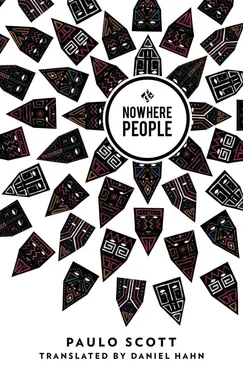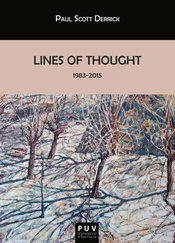Paulo Scott
Nowhere People
For Simone da Costa Carvalho
whatever happens there’s always something left over to happen again nineteen eighty-nine
If he’d had to summarise his days as a political militant, Paulo would have said that he went from total idealism to unparalleled cynicism, then finally to the melancholy escapism of these last months. That’s not how it should have been, just when the Workers’ Party won the Town Hall elections in Porto Alegre and he became known up and down the country as a student leader, a key figure with a good chance to try for a seat on the City Council three years from now, and only twenty-one years old, about to graduate in law at the end of the year from the Federal University of Rio Grande do Sul, and for whom it took the whole of last year to realise this fact: that despite his great potential , he is no more than a minor foot-soldier, a pawn among the other pieces on the board, not greedy enough to challenge, equal to equal, the schemings of the gang on the second echelon, many of them creeps he had already hated even before he joined, back in eighty-four. His current difficulty in getting more deeply involved in political life, in making a career of it and fighting for it, would only end up in physical dependency, and its price already seems to him to be too high; and he knows that if he does not push himself forward and just allows himself to be carried along by the party’s almost inevitable ascent he runs the risk of one day having to cling shamefully to the coat-tails of one of the creeps he so despises in order to get himself a place in the administrative machine and support himself financially. Just as hundreds of his fellow activists are doing, throwing themselves into the contest in the pursuit of positions in the state administrative departments, in the mayor’s office, the deputy mayor’s office, in foundations, public institutions and joint public-private enterprise; people who until recently, especially over a beer, would insist on beating their chests and declaring they were only there to rescue Brazil from exploitation by capital. In a way, he can understand: he is asking too much of himself and is unable to face up to the days that have finally arrived with any sense of calm, these days towards which his physical, mental and emotional energies have been channelled over the past four years. What is certain is that since the beginning, when he took part in that first local party meeting in Glória in eighty-three, he had promised himself he would not allow his theoretical unpreparedness and almost complete innocence in relation to politics to be transformed into mediocrity. Already he can’t help seeing most of the leadership as members of a Machiavellian and tightly-knit little fraternity of opportunists carrying forward their own plans in order to attain power and, consequently, some money as quickly as possible. He has lost his capacity to assimilate contradictions. He has stopped believing. Which is why his focus on what needed to be done and the resulting calm of belief have disappeared. This anxiety remains. Less than a month ago at a consultation with Doctor Geraldo, who has been looking after his family for three generations, he heard: ‘Paulo, this stress of yours is manifesting too severely in physical symptoms; it’s all going to your stomach. It’s not normal for a big lad of your age to have chronic gastritis as advanced as yours.’ The doctor spoke with his measured border accent and looked at Paulo until he said yes, I know, doctor, I’ll try and take care of myself. He left the surgery with a prescription for an acid blocker even stronger than the Cimetidina he was already taking and an absolute ban on consuming any kind of alcoholic drink or spicy food for a fortnight, at least. He doesn’t feel comfortable. And even having decided to cut himself off from the party completely, Paulo still has not cancelled his membership and remains bound to the Trotskyite-based organisation with which he has been involved for three years, and last Saturday (despite being deliberately late and missing the ten-thirty bus that had left Porto Alegre the previous night for the city of Rio Grande, carrying another fifteen militants who were taking part in the year’s first clandestine meeting of his organisation), he woke up before six, washed his face, packed his law-trainee rucksack with three changes of clothes and left the house in his Durepox-grey Beetle, an eighty-three model, to pull in half an hour later at pump number four at the Ipiranga petrol station on the corner of Santo Antônio and Voluntários da Pátria and ask the attendant to put in thirty litres of petrol which he would split with his two acquaintances from São Lourenço do Sul, Eduardo ‘Blondie’ Vanusa and ‘Handlebar ’Tache’ Nico, dressed up as the Beagle Boys, slumped in the passenger seat and the back seat respectively (and still drunk from the rounds of beer with Steinhäger they’d consumed at Bar Lola while they waited for a certain Neide from the Porto de Elis Cocktail Bar — who was going to show up dressed as Dr Frank-N-Furter, the cross-dressing Transylvanian from The Rocky Horror Show — to get them into the invitation-only fancy dress party taking place in the Bar Ocidente; Neide, as it turned out, never showed up), and at quarter to seven cross the Guaíba drawbridge and head towards the south of the state for what might be his last meeting as a member of the organisation, driving without worrying about his passengers, who had already given up and were drooling into the upholstery of the seats; driving without having to put up with three hundred kilometres’ worth of feeble talk about revolution and the Fourth International, about which of the Workers’ Party girls they’d had and, with the help of the most preposterous Reichian arguments, about the ones who might have started off stubborn but were now desperate to give up their pussies. Saturday passed slowly. He struggled to stay awake during the debates; he couldn’t bear to look at those people any longer. It was not a coincidence that at night, as soon as the last panel discussion came to an end, he slipped away, got his car, went to Cassino Beach. There he came across the birthday party in the ballroom of the Hotel Atlântico where he happened to run into Manoela, a producer two years older than him, with whom he had fallen in love at the end of a summer on the Ilha do Mel three years back. She was the one who spotted him and came over delightedly and after the requisite where have you been what have you been up to how have we left it so long, and as soon as he said he’d driven down from Porto Alegre, told him she was working as a theatre producer and was currently touring with a group who were due to be on stage at the Sete de Abril Theatre in Pelotas on Sunday and she needed someone reliable to take the costumes for the play back to Novo Hamburgo, where they were based, bemoaning the fact that the original budget was inadequate and that no delivery company would do it quickly enough without charging an arm and a leg and, not letting him respond, said she would give him seven thousand cruzados if he would drop the clothes off at her assistant’s house to be washed and mended in time for Friday’s performance at the University of Vale do Rio dos Sinos; she said that she and the actors would be staying in Pelotas till Thursday night to see to certain commitments they were obliged to honour for the local town hall, and no sooner had she asked would you help me out on this one? than he accepted. It was then that, skilfully, she adjusted the details: the clothes would actually only be ready for him on Tuesday, late in the morning on Tuesday, as there was a workshop, and he knows what they’re like, these things to do with didactic stimulation and learning strategies and all that.
Читать дальше












